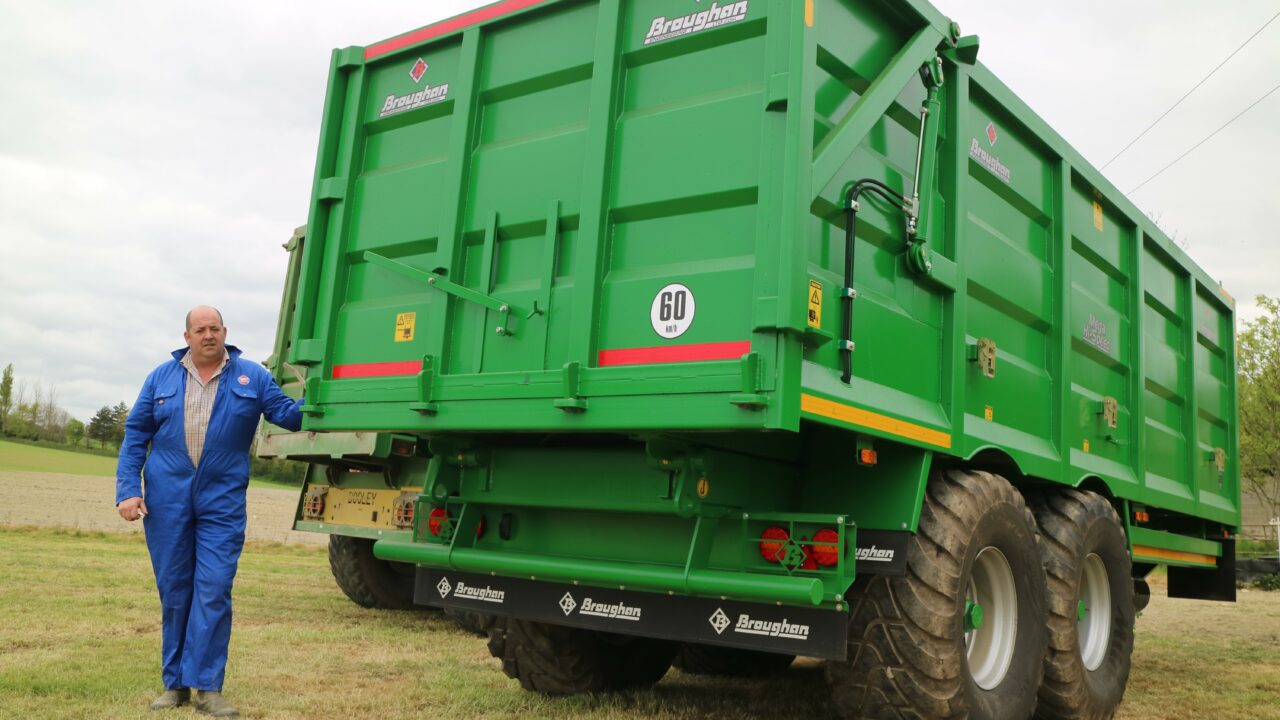With the sun shining again and the smell of freshly-cut grass in the air it can only mean one thing; summer is finally upon us and with it comes the silage season.
Fleets of machinery will be seen traversing the country, eating up vast acres of grass on farms over the coming months – to ensure there is adequate winter feed in place.
One piece of equipment that is vital to any pit silage operation (and that is often overlooked) is the humble trailer. Although not the most high-tech or expensive machine in the outfit, it is nevertheless crucial in getting the grass from the field to the pit (clamp).
However, some farmers only really need larger trailers for, maybe, four weeks out of the year. And with mounting new RSA (Road Safety Authority) regulations is it really economical to have such trailers on the farm? Trailers can come in handy for other uses but, in many cases, high-capacity units often sit idle.
So what is the solution? Wexford man John Stafford – of Stafford Plant Solutions – has built up a successful hire business based in Enniscorthy. He is well known in the machinery trade, having worked for five years with machinery distributor Farmec Ireland as a sales technician and demonstrator.

Long before that, Stafford had a passion for all things machinery – growing up on the family-run grass and tillage farm. “I went to agricultural college in Warringstown, Co. Meath where I completed the Green Cert before going across the water to Reaseheath College in the UK – for a year-long farm management course. That led to me running a 600ac potato farm over there for a year.”
Stafford returned home in 1997 to help his father Tom with the agricultural contracting business, which was primarily focused on sugar beet. The business enjoyed success up until around 2004, when the industry ground to a halt.
We tried to diversify into other forms of contracting, but it was too hard to recover from the loss of such an important industry to Irish agriculture.
It became apparent that Stafford would have to look outside the farm gates for an income.
“I spotted a niche in the market for trailer hire; nobody at the time seemed to be doing it. I thought it would be a valid option for farmers, who didn’t need a big trailer all year round – or the financial commitment.”

Stafford called upon his years of machinery knowledge and his wealth of contacts to start his business – Stafford Plant Solutions. “I always had two customers who would hire trailers off me during the busy seasonal periods; I just grew it from there – by purchasing new and used equipment.”

Today, the company offers numerous different types and sizes of trailers – such as grain/silage units from 18ft up to a tri-axle 24ft version, dump trailers from 16t upwards and a selection of bale trailers. Added to the stable last year were a selection of slurry tankers, a rear-discharge dung spreader as well as a disc harrow with a broadcaster to establish cover crops.



“I believe it’s important to offer your customers a range of machines for their ever-changing needs. New for 2017 we have added a new McHale round baler, which will help to expand our scope further.”

How does it work? In order to hire a trailer or machine, it is a relatively straight-forward process. Firstly, you will need a suitable reference or background check, as well as a significant deposit (which is refunded at the completion of the hire period or can, alternatively, be offset against the bill).
Before anything leaves the yard, it is fully checked over – as is the case when equipment is returned. Any damage has to be repaired or paid for.

How much does it cost? Depending on the equipment you want to hire, short-term rates can start at €200 per week for, say, trailers. Longer-term rates are also available.
For more information, check out Stafford’s website.

